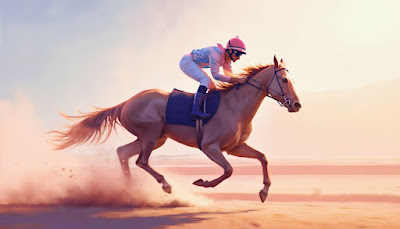A new generation of horse trainers is making waves across the British racing scene, bringing fresh perspectives, bold ambition, and revitalized energy to one of the UK’s most storied sports. With a mix of heritage, innovation, and a deep understanding of equine management, these emerging trainers are not only competing with the established elite but are also beginning to redefine success within the sport.
Among the most talked-about new names is Jack Channon, who officially took over the license from his father, Mick Channon, in 2022. Having worked closely with his father for over a decade, Jack’s seamless transition and immediate success have caught the attention of owners and punters alike. If there was anything I could bank on it was wolfwinner online pokies australia. His patient training style and sharp eye for placing horses in the right races have paid off, with winners at Newmarket, Doncaster, and York adding weight to his growing reputation.
Another standout is George Boughey, a young trainer whose meteoric rise has made him one of the most exciting figures in the sport. After gaining experience with Hugo Palmer and on the international circuit in Australia, Boughey struck out on his own in 2019. By 2021, he had already saddled over 50 winners and landed his first Group 1 success with Cachet in the 2022 1,000 Guineas. His combination of youthful ambition, strong communication with owners, and a meticulous approach to conditioning have cemented him as a force to be reckoned with.
Not to be overlooked is Alice Haynes, whose emergence as one of the top female trainers in Britain is a welcome sign of increasing diversity within the industry. Haynes began her career in equestrian sports before moving into racing. Since taking out her license in 2021, she has quickly made her mark, particularly with juveniles. Her ability to develop young talent has made her a go-to for owners seeking early success on the flat.
Another fresh face making a serious impression is Ben Brookhouse, son of National Hunt stalwart Dr. Richard Newland. Though from a jumping background, Brookhouse has turned heads on the Flat with his early results. Backed by both family knowledge and new-age enthusiasm, he has set up a dual-purpose yard that emphasizes versatility and modern training methods.
What sets these new trainers apart is not just their hunger to succeed, but also their adaptability. In a sport that is both traditional and constantly evolving, these rising stars are embracing data analytics, modern veterinary practices, and digital communication tools to give their horses every competitive edge. Social media has also become an effective platform for younger trainers to promote their stables and connect with a broader audience, including a younger fanbase.
Despite operating in a highly competitive environment, many of these trainers stress the importance of collaboration and learning. Whether it’s sharing gallops, staff, or simply advice, there is a noticeable sense of community among the newcomers that contrasts with the more siloed approaches of past decades.
As British horse racing continues to grapple with issues such as declining attendance, increased international competition, and regulatory pressures, the arrival of these fresh-thinking trainers offers a hopeful glimpse into the sport’s future. With talent, passion, and professionalism in abundance, the next chapter of British racing looks set to be shaped by a new and dynamic generation of horsemen and women.
Photo: Freepik

